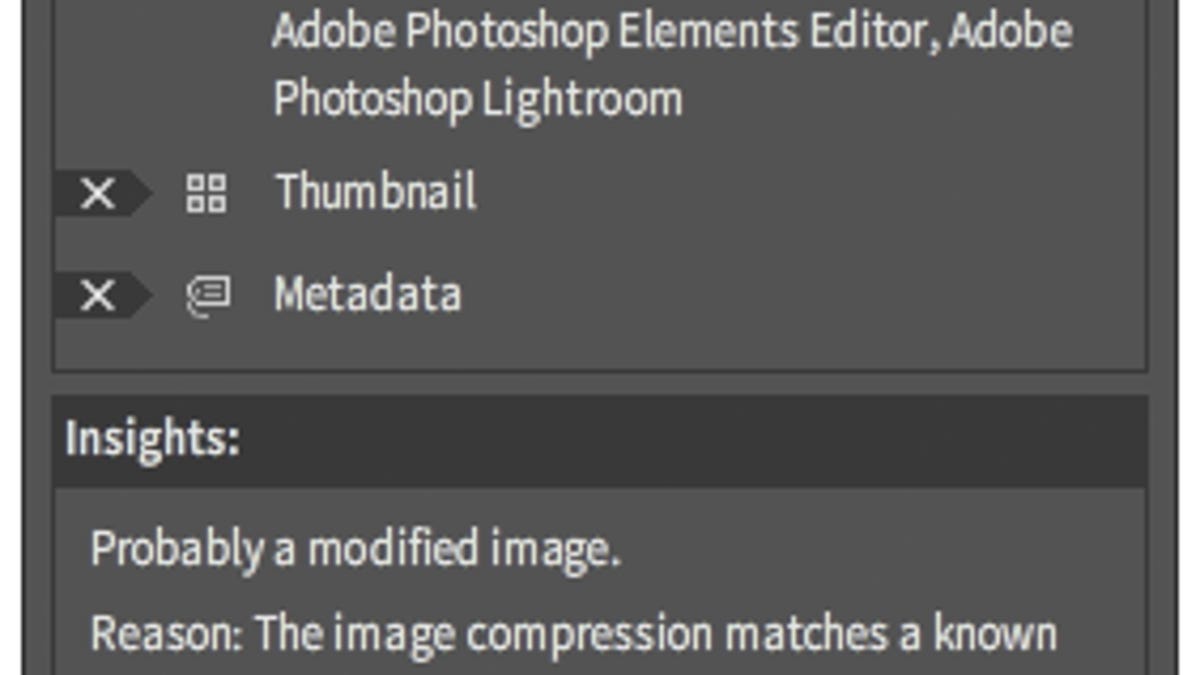Fourandsix releases image-authenticator software
Is that police evidence photo legit? Does that photo truly show what happened? A startup has software that can help give an answer.

Fourandsix Technologies, a startup founded by a former Photoshop bigwig and a image-analysis guru, has released its first product, the FourMatch software to detect changes to an image.
The most obvious use for the $890 Photoshop plug-in: ensuring that digital photos used as legal evidence are authentic.
The company lists other possibilities, too, though, such as checking that nobody's fiddled with digital images of insurance claims or contest entries, or ensuring the legitimacy of photos that might be published as the truth.
Company executives have good street cred in the area: the software came from Chief Technology Officer Hany Farid, a longtime expert in photo forensics (Get it? Forensics sounds like Fourandsix), and its president is Kevin Connor, former vice president of product management for Photoshop at Adobe Systems. Farid and Adobe worked together in the area in 2007, but never released any software.
The software includes a year of updates to the signatures database; after that, customers must pay a $500 annual fees for further updates.
Judging the authenticity of digital images is a hot area, with editing tool making it ever easier to tamper with a photo. For a look at some of Farid's work, check the CNET gallery, Pictures that lie.
The first product from Fourandsix uses a large library of 70,000 signatures from mobile phones and image-processing software to detect if a photo has been changed. Here's how the company describes its method:
FourMatch leverages the fact that there is nearly endless variety to exactly how hardware and software products can choose to store a JPEG file. This variety results in a distinctive set of "signatures" from each hardware and software product. Once an image has been edited and resaved from a software product, this signature is changed to match the software rather than the original capture device. Thus, when a file signature correctly matches a known signature from the device that captured the photo, you can be confident that the photo has not been edited.
The company plans to release further tools later that can detect other editing evidence such as mathematically detectable processing artifacts and editing flaws.

